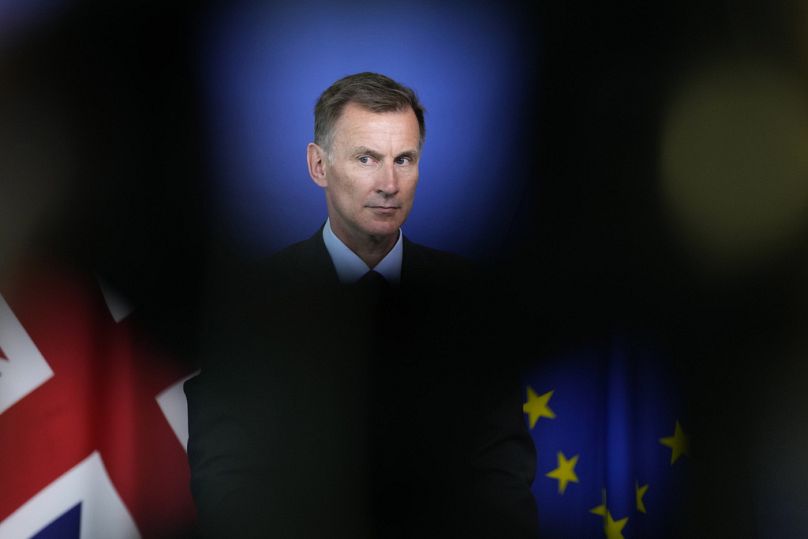While there are benefits to each of the existing regulations, they are part and parcel of a system of rules that is too complex and therefore does a disservice to UK citizens, Dr Paolo Tasca writes.
Yet another cryptocurrency scam has taken advantage of UK consumers.
Last weekend, the North East Regional Organised Crime Unit (NEROCU) issued a fraud warning against Cosoin, an “investment app” that is, sadly, not much more than a Ponzi scheme.
The continuing march of scams and frauds like this led to no surprise that last May, a UK Treasury committee “strongly recommended” that crypto trading for retail be regulated akin to gambling last year.
Later in the summer, the UK Economic Secretary to the Treasury, Andrew Griffith, rejected this suggestion, and disagreed with their recommendation to “regulate retail trading and investment activity in unbacked cryptoassets as gambling rather than as a financial service.”
Yet, with an eye on continued consumer protection, the Financial Conduct Authority (FCA) in September 2023 shared a warning that cryptoasset firms market their services appropriately with the new rules coming into effect this year.
These guidelines come alongside ones from the FCA already applying from 1 September for UK virtual asset services providers to possibly withhold transfers to and from jurisdictions not following the UN’s FATF Travel Rule.
In theory, this variety of rules, guidance and warnings creates a “Swiss-cheese” effect, which many became more familiar with during the pandemic.
Overlapping actions and guidelines suggested by varying experts can create an ecosystem minimising risk through the strength of different approaches.
While effective with public health campaigns, this approach fails with technology. It makes knowing “what to do” an unnavigable regulatory labyrinth for citizens.
This complexity negatively impacts our GDP, educational system, and consumer protections too.
The UK needs clarity. While there are benefits to each of these regulations, they are part and parcel of a system of rules that is too complex and therefore does a disservice to UK citizens in three ways.
Difficult environments are more expensive than the friendly ones
First, it disincentivises companies and organisations to move here and employ within the UK.
What are considered “difficult” regulatory environments are more expensive to navigate than friendlier ones.
Look no further than the vast array of crypto companies based in the Bahamas, Switzerland, and Japan for proof of regulatory clarity benefiting national economies.
Simply put, the cost of lawyers, advisors, and consultants pales compared to having to undergo an enforcement action. But both will be considered in any go-to-market strategy for a company that works in blockchain and cryptoassets.
It is also important to note that this includes companies that deal with this technology even tangentially, such as sending or receiving stablecoin payments. Alarmingly, stringent regulations could apply to a nonprofit that uses an open ledger to record data or statistics if there is any purchase or use of tokens involved.
The UK is far more advanced than other countries in terms of having rules to work from, but they must be more precise and adjustable to the expanding realm of blockchain and web3 use cases.
A proactive, welcoming webpage or agency communication vehicle where companies can ask questions directly of the regulators would be a good start and show the UK’s commitment to bringing in technological advancements. There is ample time to make this happen.
Lack of clarity affects progress
Second, by cataloguing technological industries as problematic or even criminal, the country further disincentivises universities and educational institutes from expanding into these areas.
The UK, again, is already a leader in this regard, with several leading universities having blockchain, cryptoasset and AI programmes to prepare our citizenry for the emerging technological world.
But let’s not attribute this to recent events — these institutes are equally likely to be the result of early research into the space.
In other words, the UK regulatory environment now is determining which projects get grants and funding in the following five to ten years.
Looking at the recent regulatory actions, it is more likely these future programs will sit in public policy or law schools instead of economic departments or business schools. The future reality best for UK citizens must include both.
A law student should be able to study how to apply case law to new technological inventions, and a business student should be able to explore the creation and deployment of tokenisation models for their future enterprise.
Third and finally, an unclear system also challenges consumer protection, as consumers themselves need help determining what is allowed and not allowed.
Lack of clarity makes consumers (and the businesses they run) more likely to be manipulated by bad actors. It is not easy to find regulatory information right now, and the “Swiss cheese” approach only works if everyone can understand how the slices fit together.
It takes a careful read of committee recommendations and press clips to genuinely understand the state of the union on cryptoassets.
And, as seen in the past year, one new policy document can completely transform the status quo. This doesn’t pass muster for helping a consumer who sees a questionable advertisement online, nor for a business seeking to understand if their services partner is following regulatory guidelines.
Let's take our work a step further
These three issues make it more likely that another jurisdiction will supplant the UK as a leader in emerging technologies.
Considering the EU and the far-reaching effect of its MiCA regulations and GDPR, the country (or countries) with the most potent rule end up defining the actions of the others.
In that scenario, the UK will likely be subject to the regulation in some form — without helping design it.
Why not build our infrastructure ourselves, benefit from the jobs and GDP, and give our students the knowledge, too? We are expertly recovering our economy and citizens from the adverse effects of FTX and other bad actors.
Let’s take our work a step further and proactively build the structure and incentives — as well as the rules — that are best for our GDP and consumer protection.
With a timely and collaborative approach, we can influence the changes we want to see in the rest of the world.
Dr Paolo Tasca is professor of emerging technology at the University College London and director of the UK Centre for Blockchain Technologies and the DLT Science Foundation. He previously served as the lead economist for digital currencies and P2P financial systems at the Deutsche Bundesbank, the German central bank.
At Euronews, we believe all views matter. Contact us at view@euronews.com to send pitches or submissions and be part of the conversation.





